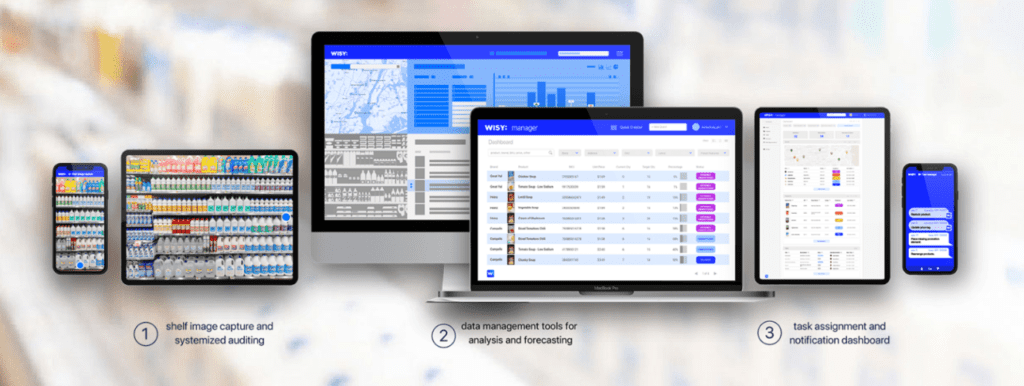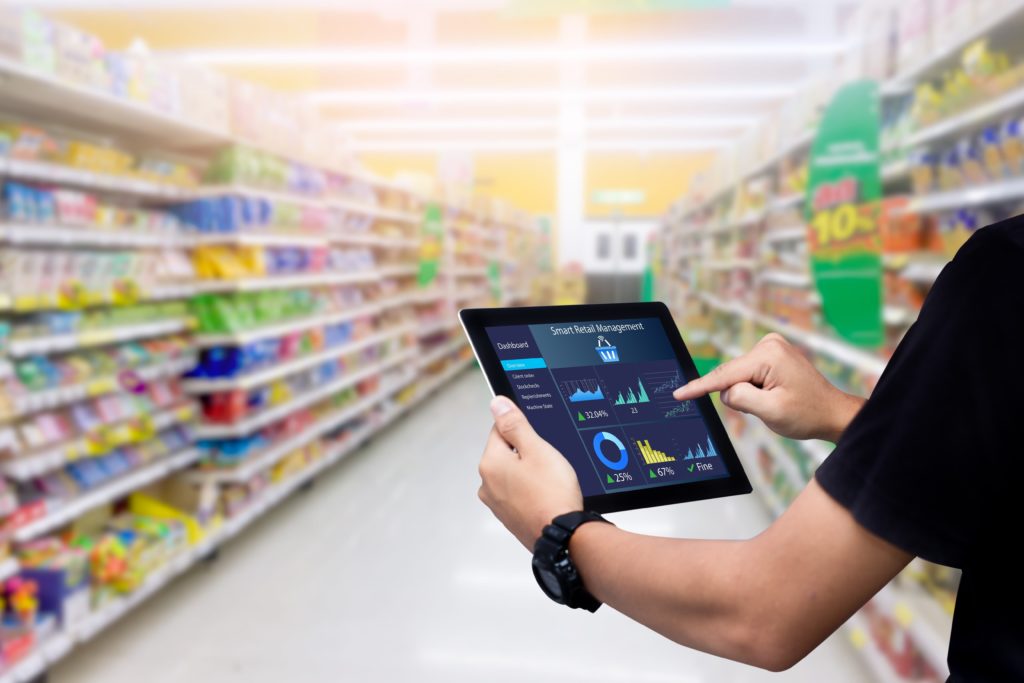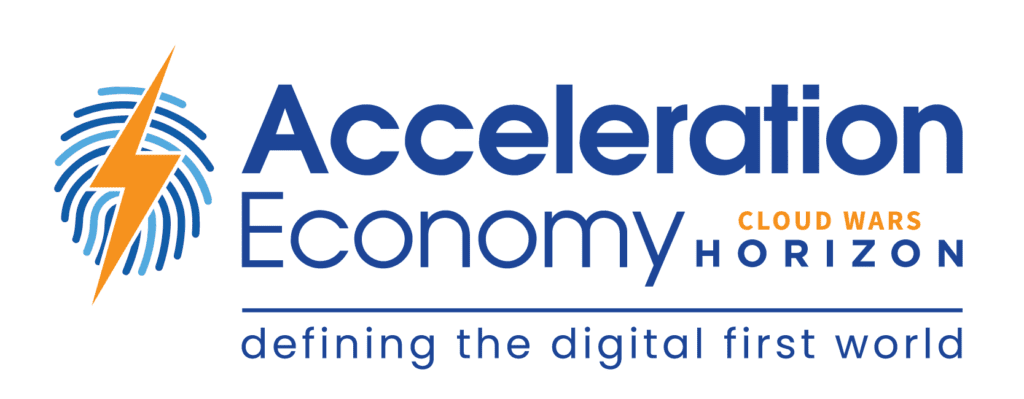Wisy is part of a profile series featuring startups participating in the Innovation Path at Cloud Wars Expo, taking place June 28-30 in San Francisco.
Who They Are:
Software startup Wisy Inc., based in San Francisco, is taking on a problem that plagues consumer packaged goods when it comes to product inventory in the retail setting.
But Wisy’s platform isn’t an inventory management system. The problem it aims to solve is different than the inventory issues that currently plague major retailers, including Target, Walmart, Macy’s, and others. Those firms have too much inventory on hand that doesn’t meet the most up-to-date customer requirements.
In Wisy’s case, it’s attacking a different problem that’s also incredibly costly: Physical retailers having the inventory that customers want but not having it available for the customer, primarily due to a lack of information. For example, the person who restocks shelves isn’t aware, in a timely way, that a retailer isn’t presenting a product the customer wants or doesn’t have it readily available on the shelf for a customer to buy it. The product is expected to be used not only by consumer packaged goods (CPG) firms but also by retailers.
Wisy officials cite research that says the industry loses $1 trillion a year from this type of retail execution problem. “Most of the time, the product is already there, but it wasn’t delivered, it wasn’t back in the store and so forth,” says Min Chen, CEO and one of the cofounders of Wisy, whose name is derived from the words “wise” and “easy.”

Wisy’s artificial intelligence (AI)-driven platform is able to quickly and accurately review what’s on store shelves, identify gaps, and let personnel on-site take timely action to resolve issues as well as ensure inventory is available for the end customer.
Wisy is backed by $2.7 million in venture capital investment along with $500,000 in research grants. It’s a participant in the SAP.io startup accelerator program.
What They Do:
The most common way of presenting, managing, and “optimizing” inventory on retail store shelves (consider products with a number of different manufacturers side by side, such as soda or potato chips) is to have CPG or store employees count them, visually inspect them, and try to present them in the most appealing fashion. The problem is that process relies fully on human actions and it doesn’t utilize the latest information that’s available. Key questions that can’t be answered with this antiquated (though still prevalent) methodology include:
- Is the customer seeing the right products?
- Are the assortment and presentation optimal to maximize the share of shelf for an individual CPG firm’s products?
- How does any one CPG firm’s presentation or share of shelf compare with that of its competitors?
Wisy aims to replace the flawed human and visual counting methodology with an elegantly simple combination of a camera (using a common cellphone or tablet) that communicates with its AI platform to deliver real-time analysis, recommendations, and optimization. The system is not intended to replace an inventory management system — those are typically deeply embedded — but rather to optimize retail execution.

Here’s how Wisy works in a typical scenario: a CPG sales rep who manages their firm’s inventory at a retail store visits the store and snaps photos of its products. When there’s a solid Internet connection (not a given, more to come on that), the photo is uploaded to the Wisy platform, where data analysis happens. The AI platform crunches the data for insights including:
- If a product is not available on the shelf, is it in the store and can it be replenished quickly?
- Is a product in danger of going out of stock in the near term and, if so, can the CPG company replenish it quickly?
- A brand’s share of shelf — the space that a firm’s products occupy versus its competitors
- A forecast of demand
- Pricing analytics
- Optimal product assortment
- Misplaced product
- Incorrect pricing
“They don’t have to count or eyeball things anymore,” Chen says. “They can move from spending 20 minutes in that task to a few seconds because now they just take pictures and we will tell them all the things they previously had to manually verify.”
“These are things brands don’t do today because it’s so manual and expensive. Sometimes they just pay for a research report, but that’s not actionable.”
Min Chen, CEO of Wisy

One key aspect of Wisy’s tech is that the system can operate even when there is no Internet connection in a store, which Chen says is not an uncommon scenario. The company has made this possible by embedding the image recognition component in its end-user app, so all the required near-term processing can happen locally. Then, once a connection is established or re-established, data is uploaded to the Wisy platform via the cloud and additional processing kicks in.
“This is an operational task and we have to give actionable insights,” Chen says. “Previous solutions took minutes to return info if they had a good Internet connection.”
Who They Expect to Impact
As an early-stage startup, Wisy is not able to provide reference customers who are in production with its AI platform — not really a surprise given where the company is at in its development.
However, Wisy’s AI technology has been chosen among 90 startups worldwide by the Chilean beverage giant CCU to increase retail execution and supply-chain efficiency for its alcoholic and non-alcoholic beer and other beverages. CCU’s goals include reducing out of stocks, gaining competitive intelligence, and raising customer satisfaction levels.
The Future and Closing Thoughts:
Because Wisy is in its early stages and not able to provide enterprise customers in production as references, it seems likely the company, its direction, and the expected use cases for its platform will continue to evolve as Wisy and customers gain a deeper understanding of the value it can provide and the problems it can solve.
As more enterprise customers come on line, we’ll check back with Wisy to deliver a more detailed update on where things stand.
Want to gain more insights from Cloud Wars Expo?
Starting on July 20th, more than 40 hours of on-demand cloud education content will be available for free to Acceleration Economy Subscribers.












